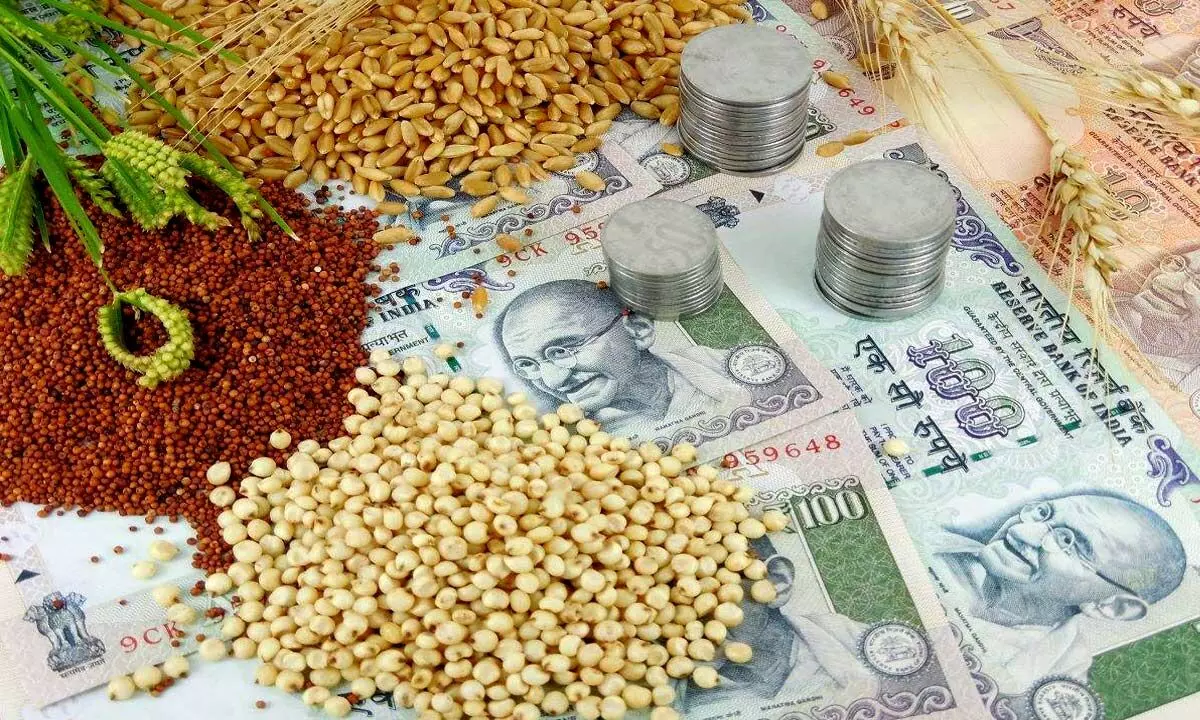Stagnation in R&D spend keeps seed cos in fix
Organised seed industry spending Rs500 cr a yr, while it must use at least Rs2,000 cr per year on the research to produce good varieties of seeds in India, says FSII DG Ram Kaundinya
image for illustrative purpose

Seed Market in India:
- Organised seed industry sees 8% y-o-y growth
- Organised seed market size at Rs 23,000 cr
- Unorganised market size at Rs 20,000 cr
- Over 400 seed companies in India
- Only 10% of them are global firms
Hyderabad: While the seed companies must annually spend at least Rs2,000 crore on research and development (R&D) to produce good varieties/ hybrid seeds in India, they are spending only Rs 500 crore a year on the R&D. The filing of intellectual property (IP) is also less in the country, says an expert in the field of agriculture business management.
“Currently, there are more than 400 seed companies in the country, including 10 per cent global firms. The organised seed industry size is pegged at Rs23,000 crore and the unorganised market size stood at Rs20,000 crore. The market size of rice seeds and Maize seeds is Rs2,500 crore each. Soyabean seeds market size stood is Rs2,000 crore. The overall organised seed market has achieved eight per cent year-on-year growth,” Ram Kaundinya, Director General of Federation of Seed Industry of India (FSII) told Bizz Buzz.
Earlier, he was the Chairman of Crop Life India, an association of crop protection chemical industry, and ABLE AG (Agriculture group of the biotech industry association). He has 35 years of experience in corporate firms as well as in the area of policy advocacy for agricultural input industry.
Raising concerns over the declining seed quality in India, Ram said: “There is a strong need for reassessment on adoption of genetically modified (GM) seeds in the country. During the last one decade, the situation of GM seeds turned very weak. The investments in the biotechnology sector as well as the R&D expenditure came down drastically.”
“The only GM crop being used in the country is Bacillus thuringiensis (Bt) cotton, which makes the cotton toxic to bollworms. Pink ballworm (PBW) is affecting the yield of cotton as it has developed resistance. Indian authorities had approved hybrid Bt1 cotton seeds in 2002 and Bt2 in 2006. Bt3 work just started in India while other nations like the US are cultivating Bt5,” he said.
Currently, almost 99 per cent of the cotton produced in the country is Bt cotton only. Before adopting Bt technology, the cotton production was 1.2 crore bales across 90 lakh hectares. After the Bt hybrids have been approved for commercial cultivation, it has grown three times to reach 3.6 crore bales across 1.2 crore hectares.
Similarly, the average yield of cotton had nearly doubled from 260 kg per hectare in 2002 to 530 kg per hectare in 2010. However, the average yield came down to 470 kg per hectare today. This is because no new technology has been approved by the Genetic Engineering Approval Committee (GEAC) in the past few years.
The GEAC is an approving authority under the Ministry of Environment, Forest and Climate Change (MoEF&CC). It is responsible for appraisal of proposals relating to release of genetically engineered (GE) organisms and products into the environment including experimental field trials.
Apart from the Bt1 and Bt2 cotton, the GEAC had so far approved only two GM food crops – Bt brinjal and Ht (herbicide tolerant) mustard. While the MoEF&CC had imposed an indefinite moratorium on the former in 2010, the decision on the latter is still pending at the Supreme Court as some groups of farmer activists sought ban on it.
Several applications of seed companies like Bayer, Mahyco, Rallis India and Rasi Seeds for GM food crops including rice, maize, cabbage, cauliflower, tomato, soyabean, okra, chilli and others are pending at the GEAC undergoing various levels of trials. Meanwhile, the farmers and seed producers in the country are facing challenges due to pest resistance and climate change.
The FSII Director General said that central government should intervene and remove the hurdles in conducting agri-biotech R&D and GM field trials for speedy development of new varieties/ hybrid seeds in the country.

